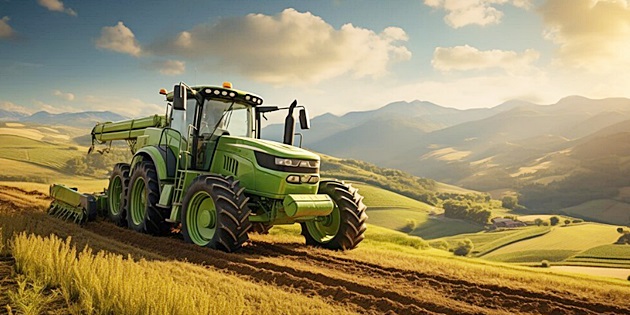1191

The agricultural sector of Europe is in the midst of a major transformation, notes Euractiv. Farmers are blaming climate change, trying to keep their heads above water during floods, cope with extreme weather events, and keep up with changing consumer demands.
Environmental Policies are Essential for the Future of Agriculture
Agriculture is being applied with a multitude of new knowledge, innovations, and methods, but this already difficult vocation is witnessing an exodus from the farming community, either through farmers leaving the industry or retiring without a new generation to take over the family business.
The need for impactful environmental changes to slow down the climate crisis has hit farmers hard. Having fed and clothed the world's population for centuries, enduring harsh conditions and often performing thankless work, they are suddenly the target of numerous ecological campaigns. Climate medicine is becoming increasingly hard to swallow.
The unpalatable pills have driven farmers from their fields to the streets. Capitals have seen protests against the ongoing changes imposed on the agricultural sector and the lack of support for farmers regarding food prices, fuel prices, and imports, among other issues.
For many climate change advocates, the narrative that "agriculture contributes more than 10% of the EU's total greenhouse gas (GHG) emissions" is a hard reality to ignore.
When we talk about next-generation agriculture, yes, it is full of technical improvements and innovations, but we are preparing to lose the next generation of farmers and inherited farming.
Innovative Start-ups
With a multitude of technological sectors to choose from, innovation in the agricultural sector is never far from any tech hub.
From using satellites in space technology and drone technology in the mobility sector to soil monitoring solutions from the deep tech sector, and of course, the desire to adapt to AI, the agri-food and technology sector is ripe with opportunities and advances.
Introducing AI and robotic solutions offers some excellent solutions to manage the lack of personnel in seasonal agriculture. Robotic solutions provide farmers with a 24/7 solution, especially during the volatile harvest season.
Most member states have incubation and acceleration programs for agricultural or sustainability start-ups, and when it comes to funding outside of these programs, despite the caution shown in venture capital in the post-Covid boom era, it seems there are many supporters willing to expand their next big investment.
The Future of Agriculture
The science-based agri-tech company, Syngenta, is collaborating with the AI and deep tech firm Insilico Medicine, exploring market opportunities for artificial intelligence, stimulated by the example of progress in medical pharmaceutical research.
They see that the principles of pharmaceutical innovation, which provide a generational change in human medicines, could be applied to find alternative solutions for soil – which, in turn, could provide a smoother transition for farmers.
A study by the European Commission evaluated options for mitigating climate change in agriculture, pricing emissions and rewarding carbon cultivation.
Agritech start-ups, such as eAgronom, encourage and advise farmers to reduce their CO2 emissions through its carbon credit scheme; the credits can then be sold to corporations to alleviate their guilt or offset their emissions.
The unique thing about emissions from the agricultural sector is that they are emitted while taking care of what can offset these emissions.
Carbon farming is a way forward to help achieve net zero goals promised by 2050. By planting trees, maintaining hedgerows (or rather not maintaining them), crops, and better soil management, farmers can turn environmental hazards into carbon sequestration. The sector is learning how carbon cultivation can be stimulated through many carbon credit schemes.
Electoral Pivots
Seeing farmers aggressively protesting in mass has led Ursula von der Leyen to cautiously declare that the European People's Party (EPP) is the party of farmers. Farmers could benefit from the June EU elections, validating their questionable excursions of tire burning in Brussels.
The farmers' frustration has led to a constant rise in support for far-right parties and their often radical abandonment of climate issues. These include farmers' parties, such as the Farmers Defense Force or "freedom parties" like the Party for Freedom (PVV), which has the support of the Farmers-Citizens Movement (BBB).
Meanwhile, the Greens, Socialists, and Democrats and left-wing groups are struggling this week with a Commission proposal to relax some of the environmental requirements from the Common Agricultural Policy (CAP).
Regardless of the outcome of the June elections in Europe regarding future policy changes in agriculture, two certainties will remain – there will always be innovation, and dialogue will remain necessary between all parties involved in agriculture, the environment, consumers, and animal rights.




